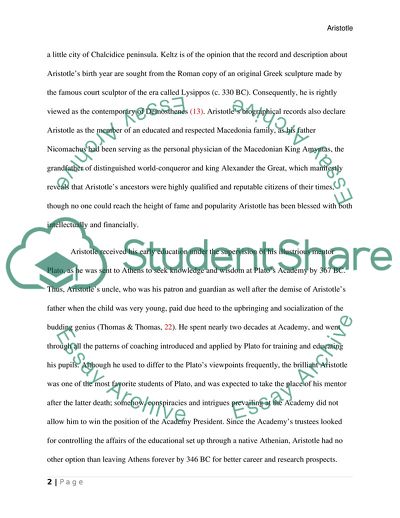Cite this document
(The Scope of Aristotle's Work and His Influence Essay Example | Topics and Well Written Essays - 1750 words, n.d.)
The Scope of Aristotle's Work and His Influence Essay Example | Topics and Well Written Essays - 1750 words. https://studentshare.org/philosophy/1771826-the-scope-of-aristotles-work-and-how-it-has-helped-influence-western-civilization
The Scope of Aristotle's Work and His Influence Essay Example | Topics and Well Written Essays - 1750 words. https://studentshare.org/philosophy/1771826-the-scope-of-aristotles-work-and-how-it-has-helped-influence-western-civilization
(The Scope of Aristotle'S Work and His Influence Essay Example | Topics and Well Written Essays - 1750 Words)
The Scope of Aristotle'S Work and His Influence Essay Example | Topics and Well Written Essays - 1750 Words. https://studentshare.org/philosophy/1771826-the-scope-of-aristotles-work-and-how-it-has-helped-influence-western-civilization.
The Scope of Aristotle'S Work and His Influence Essay Example | Topics and Well Written Essays - 1750 Words. https://studentshare.org/philosophy/1771826-the-scope-of-aristotles-work-and-how-it-has-helped-influence-western-civilization.
“The Scope of Aristotle'S Work and His Influence Essay Example | Topics and Well Written Essays - 1750 Words”. https://studentshare.org/philosophy/1771826-the-scope-of-aristotles-work-and-how-it-has-helped-influence-western-civilization.


